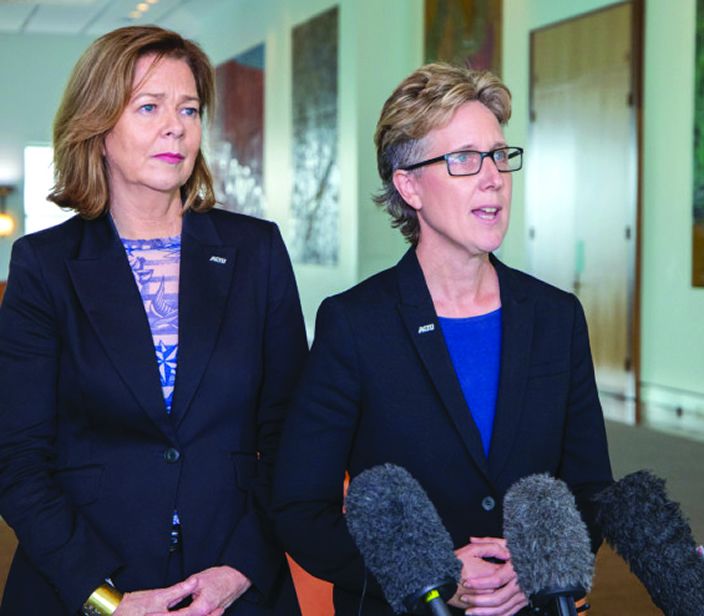
ACTU Secretary Sally McManus
“We are painfully aware that we are experiencing the largest real wage cut in history after a decade of wage stagnation,” said ACTU Secretary Sally McManus.
“We face real wage cuts for years to come. Yet many businesses are doing well and posting healthy profits,” she said.
“Falling living standards should be unacceptable to all of us, and it should be our shared objective at this Summit to turn it around.
“We also want the work of people like health care workers, aged care workers and teachers to be properly respected and valued.
“For this to occur we need to modernise the collective bargaining system.
We must have a system that is simple, fair and accessible and does the job of getting wages moving.
“Our bargaining system should aim to facilitate bargaining between equal parties, and the Fair Work Commission should play a role in ensuring this.
“Loopholes which have made bargaining completely unfair must be closed.
Employers should not be able to threaten to cancel agreements as a bargaining tactic.
“Negotiating, collaborating, representing, problem solving, creative thinking and team building are high level skills, essential to building positive work cultures and to working together to increase productivity.
“For too long productivity has been just code for cost cutting and driving down wages. Our current bargaining system is one size fits all and these days it hardly fits anyone.
“We need a new modern option for bargaining alongside enterprise bargaining to get wages moving. Multi-employer or sector bargaining makes sense for funded services, small business and other employees who have been effectively locked out of a system designed for large enterprises.”
ACTU President Michele O’Neil
At Prime Minister Bob Hawke’s National Economic Summit in 1983, there were 97 participants, but only one of them was a woman, trailblazing Senator Susan Ryan.
“Every single one of the business delegates were men. Every single one of the union delegates were men,” said ACTU President Michele O’Neil said.
“Not only is this summit unrecognisable from the one held 39 years ago, so is the world of work. In 1983 women’s workforce participation sat at 45 per cent. Today its 62.8 per cent (for men its 70.8 per cent).
“That’s a big change but it masks how poorly we sit compared to other OECD countries and how glacially slow is our progress towards equity.
“Women in Australia are lower paid, have less super, work fewer hours, are more likely to be casual or part time, have unpredictable hours and rosters, are more likely to have to work multiple jobs, less likely to have paid leave, more likely to be discriminated against, harassed and assaulted at work.
“If you are a First Nations woman, living with a disability or from a culturally and linguistically diverse background, the figures are considerably worse.
“Our existing industrial relations laws are failing women. We have pay equity laws that perversely require you to run an argument to properly value women’s work by identifying a male comparator.
“We have so-called flexible work arrangements which give you the right to ask for work hours that are consistent with care and family responsibilities, but no rights if your employer just says no.
“We have a bargaining system designed for large, male-dominated workplaces, locking women in feminised industries out of the system and leaving them without power to join with others and negotiate.
“Arguments to keep our bargaining system in the past and only enterprise based are arguments to cement women’s low pay for generations to come.
“To tackle inequality, we need a new simple, fair collective bargaining system that adds the option of multi-employer or sector bargaining. This will open collective bargaining for women.”


































































































































